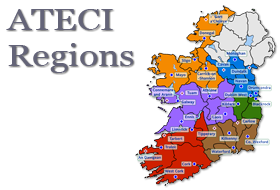The new Professional Diploma in Mathematics for Teaching (part-time) aims to train out-of-field mathematics teachers over the next three years.
NUI Galway and UL AllianceThe Professional Diploma in Mathematics for Teaching was officially launched on Friday May 25 by the Minister of State for Research and Innovation Seán Sherlock. The programme, which is part-time, aims to train out-of-field mathematics teachers over the next 3 years.
In 2010, the National Centre for Excellence in Mathematics and Science Teaching and Learning (NCE-MSTL), based at the University of Limerick, drew attention to the systemic issue of out-of-field teachers of mathematics in a report which found that 48% of teachers teaching mathematics at post-primary level had no qualification in mathematics teaching.
Speaking of the new Professional Diploma, Professor John O’Donoghue, Director National Centre for Excellence in Mathematics and Science Teaching and Learning (NCE-MSTL), said:
“This decision represents an historic step in moves to reform post-primary mathematics. Ireland’s urgent need to raise science and mathematics knowledge and skills in order to serve critical national educational, economic and entrepreneurial needs is well documented.
"This programme will support teachers to focus on subject knowledge and practice that will impact student performance and stimulate interest in mathematics and science”.
Jointly accredited and designed by NUI Galway and UL, the programme will be delivered nationwide free of charge through a national consortium of higher education institutions and the Association of Teacher Education Centres in Ireland. Approximately 400 teachers will begin the course this autumn.
The course will be a blended learning programme based on a part-time (2-year) university accredited professional diploma, delivered locally and through online modules. Google will support the flexible online delivery of the programme as the chief technology partner in the NUI Galway-UL Alliance-led consortium.
The new programme is aligned with the national curriculum reform, Project Maths (2008-2015); the requirements of the Teaching Council as the statutory body for teaching in Ireland; and latest developments in innovative educational technology and mathematics education research. There will be specific provision for teachers in Irish-medium schools through a Dioplóma Gairmiúil sa Mhatamaitic don Mhúinteoireacht, supported by NUI Galway and Acadamh na hOllscolaíochta Gaeilge, Gaillimh.
Under the NUI Galway-UL Strategic Alliance, a team from the School of Mathematics, Statistics and Applied Mathematics and School of Education, NUI Galway has worked closely with the National Centre for Excellence in Mathematics and Science Teaching and Learning (NCE-MSTL, UL) to develop the new professional mathematics education programme.
Dr Tony Hall NUIGSpeaking of the announcement, Dr Tony Hall, NUI Galway, said:
"The principal focus of this unique new course is to enhance teachers’ mathematical content knowledge and their understanding of the subject of mathematics, helping to support the wider national reforms currently taking place in mathematics education in Ireland.”
The NCE-MSTL leads a national consortium of Higher Education Institutions (HEIs) established for the purposes of delivering this programme. The consortium includes: NUI Galway, University College Dublin (UCD), St Patricks’ College, Thurles; Institute of Technology, Sligo; Institute of Technology, Tallaght; Institute of Technology, Carlow; Cork Institute of Technology; Dundalk Institute of Technology; Letterkenny Institute of Technology; Waterford Institute of Technology.
The consortium also includes, through the NCE-MSTL, its founding partners in the Shannon Consortium: UL (lead), IT Tralee, Limerick Institute of Technology and Mary Immaculate College.
Minister for Education Ruairi QuinnCommenting on the launch, Minister for Education and Skills Ruairí Quinn said:
“The provision of this course provides further evidence of my personal commitment, and that of my Government colleagues, to supporting maths teaching in post primary schools.
"We are providing over €2million to fund this course, and are making it available at locations across the country and free of charge, to maximise accessibility and participation.”
Minister Sherlock said:
“The teaching community has shown significant interest in this course since my announcement last September. I am pleased that the course will facilitate teachers who are working during the day, with convenient local and online access.”
Partnering with Google Ireland brings distinctive benefits to the programme, enabling the providers to maximize the blended learning opportunities for students and providing possibilities for use of portable and mobile computing to enhance mathematics teaching in Irish schools.
John Herlihy, VP and Head of Google in Ireland said:
“Government, industry and academia all agree on the need for more students to study Maths, Science and Engineering subjects at third level and on the need to produce graduates with strong analytical and problem solving skills.
"The introduction of a Professional Diploma in Mathematics for Teaching is an important step in augmenting how we teach maths in our secondary schools.
"I believe that providing ‘out of field’ teachers with the specialised skills to teach maths in an enthusiastic and knowledgeable way will be a catalyst for more students pursuing maths based subjects at third level.”
The programme will be offered free to eligible teachers starting in September 2012. Places will be allocated on a quota basis by the Department of Education & Skills.
The programme is closely aligned with the needs of out-of-field teachers of mathematics, Project Maths and the requirements of the Teaching Council.
To apply online please click here.
For further details call the National Centre for Excellence in Mathematics and Science Teaching and Learning (NCE-MSTL) on 061 234786 or email [email protected].
